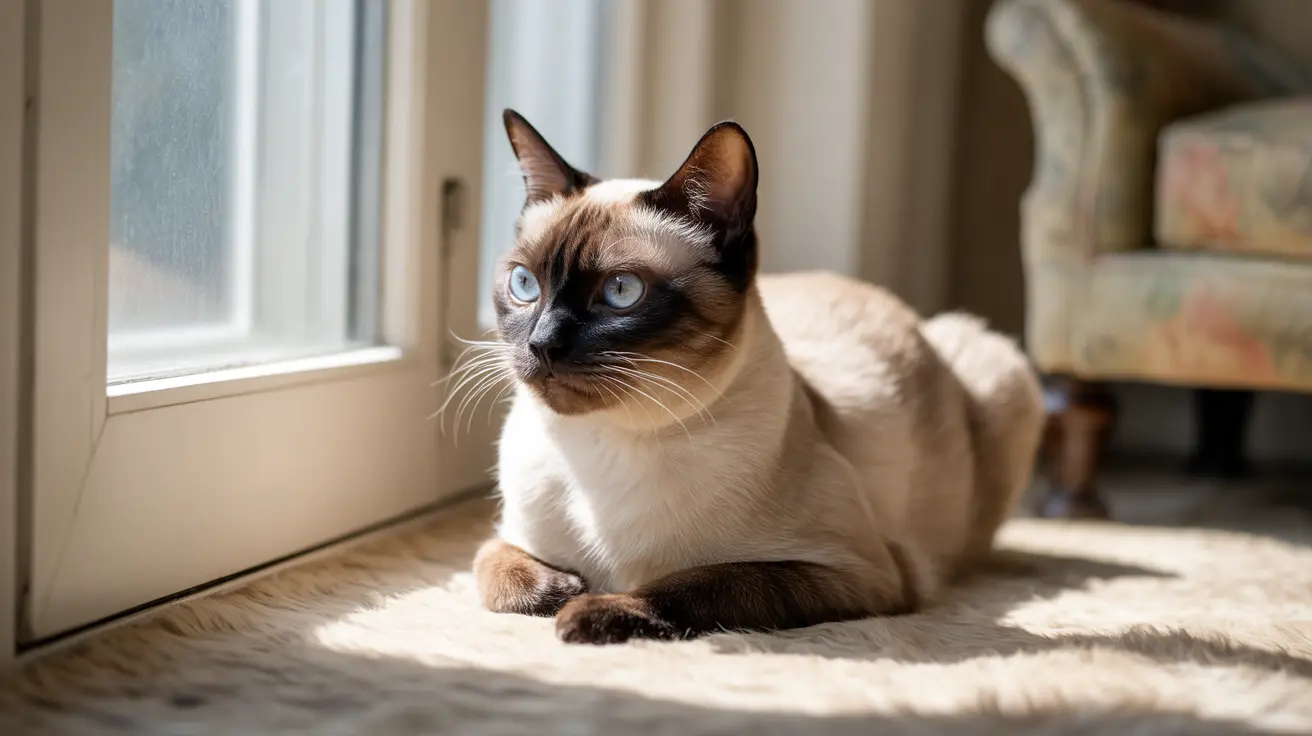Finding blood in your cat's poop can be alarming for any pet owner. While this symptom can range from mild dietary issues to more serious medical conditions, understanding its causes and knowing when to seek veterinary care is crucial for your cat's health and your peace of mind.
In this comprehensive guide, we'll explore the various reasons behind blood in cat poop, how to identify different types of bleeding, and when you should be concerned enough to seek immediate veterinary attention.
Understanding Different Types of Blood in Cat Stool
Blood in cat stool can appear in different forms, each potentially indicating various health issues:
Bright red blood (hematochezia) typically suggests bleeding in the lower digestive tract, particularly the colon or rectum. This fresh blood often appears as streaks or drops on the surface of the stool.
Dark, tarry blood (melena) indicates bleeding from higher in the digestive system, such as the stomach or small intestine. This type of blood appears black because it has been partially digested, and it's usually mixed throughout the stool.
Common Causes of Bloody Stool in Cats
Parasitic Infections
Intestinal parasites like hookworms, roundworms, and coccidia can cause bleeding by attaching to or irritating the intestinal lining. Regular deworming and preventive care can help avoid these issues.
Inflammatory Conditions
Inflammatory bowel disease (IBD) and colitis can lead to intestinal inflammation and bleeding. These conditions often require long-term management under veterinary supervision.
Dietary Issues
Sudden changes in diet, food allergies, or eating something inappropriate can irritate your cat's digestive system, potentially causing bloody stool. Always transition to new foods gradually over 7-10 days.
More Serious Conditions to Consider
Infections and Disease
Bacterial, viral, or fungal infections can cause inflammation and bleeding in the digestive tract. Some infections, like feline panleukopenia, require immediate medical intervention.
Physical Trauma and Blockages
Foreign objects, constipation, or physical injuries can damage the digestive tract and cause bleeding. These situations often require prompt veterinary attention to prevent complications.
When to Seek Immediate Veterinary Care
Contact your veterinarian immediately if you notice:
- Multiple episodes of bloody stool
- Blood accompanied by diarrhea or vomiting
- Lethargy or loss of appetite
- Dark, tarry stools
- Signs of pain or discomfort
Frequently Asked Questions
What are the common causes of blood in a cat's poop?
Common causes include parasites, inflammatory bowel disease, infections, dietary changes, stress, and physical trauma to the digestive tract. Some cases may be related to more serious conditions like cancer or organ dysfunction.
Why does my cat have bright red blood in their stool, and is it serious?
Bright red blood typically indicates lower digestive tract bleeding. While it can be caused by minor issues like stress or dietary changes, persistent bleeding should be evaluated by a veterinarian.
How do I know when blood in my cat's poop requires immediate veterinary attention?
Seek immediate veterinary care if the bleeding is severe, accompanied by other symptoms like vomiting or lethargy, or if the blood appears dark and tarry. Multiple episodes of bleeding also warrant prompt medical attention.
Can stress or a diet change cause blood in a cat's poop?
Yes, both stress and dietary changes can cause inflammation in the digestive tract, potentially leading to bloody stool. However, these causes should be diagnosed by a veterinarian to rule out more serious conditions.
What tests does a vet typically run to diagnose blood in a cat's feces?
Veterinarians typically perform fecal tests, blood work, and physical examinations. They may also recommend imaging tests like X-rays or ultrasounds to identify the underlying cause of the bleeding.






